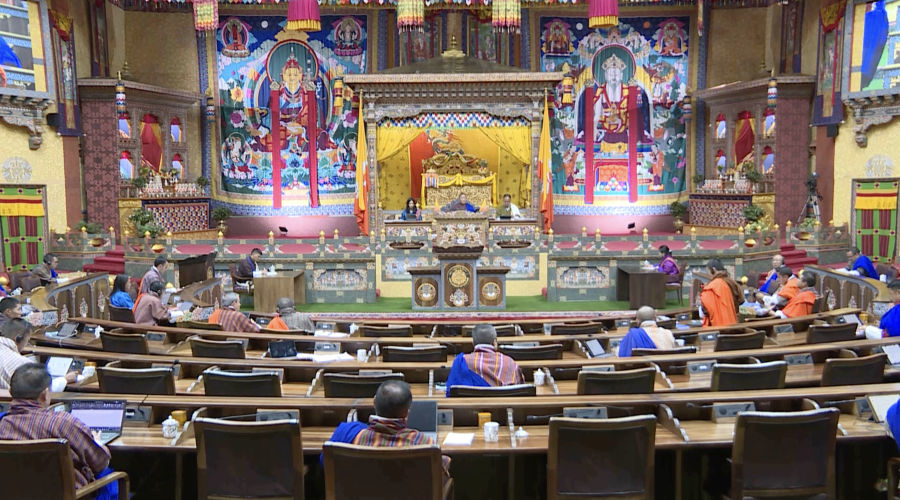 The National Assembly has decided to reduce the Goods and Services Tax rate to five per cent. The Economic and Finance Committee recommended the change. The government had initially pitched a seven per cent GST in 2020 on almost all goods and services, leaving only a few select items. But after deliberation, the committee trimmed the rate to five per cent and tightened the list of exemptions, broadening the tax base while easing the rate.
The National Assembly has decided to reduce the Goods and Services Tax rate to five per cent. The Economic and Finance Committee recommended the change. The government had initially pitched a seven per cent GST in 2020 on almost all goods and services, leaving only a few select items. But after deliberation, the committee trimmed the rate to five per cent and tightened the list of exemptions, broadening the tax base while easing the rate.
The Committee said the lower rate would improve tax compliance and reduce tax leakage. A lower GST rate would help reduce the financial burden on the public, adding that a five per cent rate is better suited to Bhutan’s current economic situation.
“We are proposing to reduce the tax rate by two per cent for all goods and services, from seven to five per cent. This is to ensure that our people do not feel too burdened,” said Tshewang Rinzin, Member, Economic and Finance Committee, National Assembly.
“If we put a high tax on our people, they are going to feel the burden. While the government says there are exemptions, the committee says it is to broaden the tax base and reduce leakage. I would like to propose lowering it from five to three per cent,” said Kinzang Wangchuk, Dramedtse Ngatshang MP, Monggar, National Assembly.
“If we start by taxing seven per cent, it might be difficult for our people to afford it. I support the committee’s recommendation to reduce it to five per cent, and it would be even better if it could go down to three per cent,” said Lam Dorji, MP, Wamrong, Trashigang, National Assembly.
However, the proposal faced some opposition.
“If we reduce the tax rate to five per cent, our government revenue will drop by around three billion. This will directly affect our ability to implement development activities and deliver essential services to our people,” said Younten Phuntsho, Agriculture and Livestock Minister.
“We are asking to start the rate at seven per cent. If we begin at five per cent now, it will be difficult to raise the rate in the future,” said Namgyal Dorji, Industry, Commerce and Employment Minister.
The GST amendment bill aims to replace the existing sales tax and consolidate various indirect taxes into a single GST system.
Experts say GST may cause mild inflation at the start. However, since it’s a self-monitoring tax system, it will help keep prices in check. It won’t stop inflation entirely, but it will prevent it from rising too quickly.
GST is a consumption tax. GST is applicable on value addition at multiple stages. With the five per cent GST, the prices of some goods will increase, while others may become cheaper, since goods and services have different tax rates now.
Parliament has minimised the exemption list in Schedule IV (C) to just five essential items: rice, oil, salt, wheelchairs for disabled persons, and sanitary pads and diapers for women, adults, and babies. This ensures that only truly necessary goods remain tax-free, protecting vulnerable groups and basic needs.
According to experts, this reform is designed to make goods and services more affordable while supporting sustainable economic growth and strengthening the nation’s fiscal health.
Previously, Schedule IV (C) included over 234 exempt items. By removing unwarranted exemptions, the amendment broadens the tax base, aligns with international GST best practices, and prevents market distortions that can arise from excessive exemptions. This approach supports a fairer, more transparent, and efficient tax system.
Experts say excessive exemptions disrupt the input tax credit chain, increase compliance costs for businesses, and can result in higher prices for consumers. By limiting exemptions, the new GST structure allows businesses to claim input tax credits more effectively, lowers costs, and benefits consumers through a more predictable and equitable tax environment.
The reduced GST rate and targeted exemptions are expected to enhance revenue integrity, promote business growth.
If passed, the revised GST Amendment Bill is expected to come into effect next year.
Samten Dolkar & Deki Lhazom
Edited by Tandin Phuntsho










